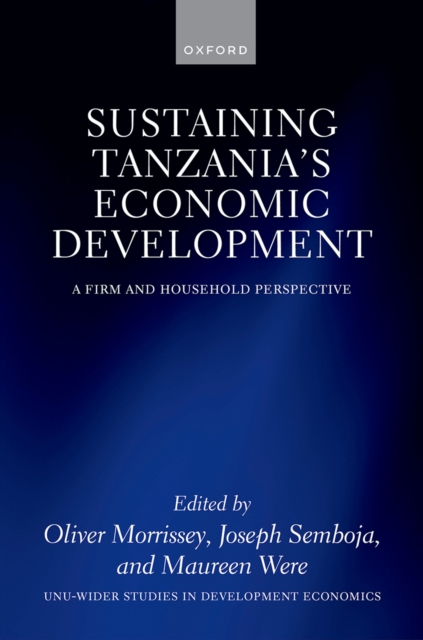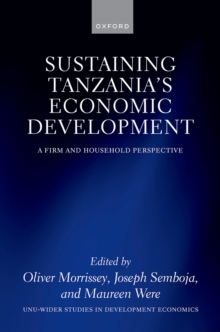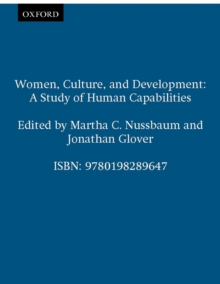
Sustaining Tanzania's Economic Development : A Firm and Household Perspective PDF
Edited by Oliver Morrissey, Joseph Semboja, Maureen Were
Part of the WIDER Studies in Development Economics series
Description
This is an open access title available under the terms of a CC BY-NC-SA 3.0 IGO licence.
It is free to read at Oxford Academic and is offered as a free PDF download from OUP and selected open access locations. This book investigates the performance of firms and households in Tanzania and the strategies they adopt to navigate shocks, achieve sustainability, and build resilience in order to sustain their growth and development.
The contributions take into account competitiveness and productivity for firms, and income or welfare for households.
Has the ability to navigate successfully through shocks and a changing economic environment improved over the past two decades?
What are the lessons for managing and recovering from shocks, such as the COVID-19 pandemic?
Chapters cover a range of issues including competitiveness and value chains as determinants of (export) trade performance and the importance of technology, innovation, linkages, and value chains for the resilience and sustainability of firms.
Trends in household income diversification and rural livelihoods, and improvements in financial inclusion, particularly through digital financial innovations such as mobile money services, promote the resilience and sustainability of households.
Gender and regional, especially urban-rural, differences are incorporated. Cross-cutting themes emerge: the need for modern technology and infrastructure to increase the productivity and employment of firms; the role of investment in human capital in reducing gender inequalities and equipping workers and entrepreneurs with relevant skills; and the importance of access to resources for innovation.
The performance of Tanzanian firms has gradually improved since 2000 - although many challenges remain - and this has benefitted households through employment opportunities; the COVID-19 pandemic was however a significant shock to the economy and progress stalled or reversed as a result.
Tanzania, like many countries, faces a challenging future but is better positioned to do so than it has been.
Information
-
Download - Immediately Available
- Format:PDF
- Pages:256 pages
- Publisher:OUP Oxford
- Publication Date:27/02/2024
- Category:
- ISBN:9780192885753
Information
-
Download - Immediately Available
- Format:PDF
- Pages:256 pages
- Publisher:OUP Oxford
- Publication Date:27/02/2024
- Category:
- ISBN:9780192885753










